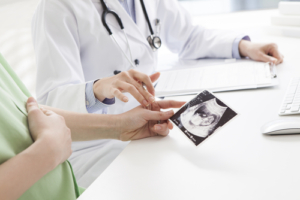 Labor and delivery is the grand finale that expectant mothers anticipate. They look forward to finally meeting their newborn, but they may also have concerns about whether they will have a birth free of complications. What many pregnant women discover, unfortunately, is that there are prenatal birth injuries that can cause problems with a pregnancy long before contractions begin.
Labor and delivery is the grand finale that expectant mothers anticipate. They look forward to finally meeting their newborn, but they may also have concerns about whether they will have a birth free of complications. What many pregnant women discover, unfortunately, is that there are prenatal birth injuries that can cause problems with a pregnancy long before contractions begin.
Here are just five dangerous prenatal birth injuries for mothers that can threaten her well-being and the health of her baby:
1. Gestational diabetes
Gestational diabetes is a common occurrence in pregnancy, which is why moms have a glucose screening between 24 and 28 weeks of pregnancy, earlier if a mother is predisposed or shows signs of high glucose levels. If this condition is diagnosed, the obstetrician usually recommends diet changes and other lifestyle adjustments to keep blood sugar in check and protect both mother and baby from complications.
If gestational diabetes is not properly diagnosed and monitored, the newborn could have respiratory distress, preterm birth, or be at a greater risk for developing diabetes later in life.
2. Group B strep (GBS)
Also referred to as Group B streptococcus, GBS is a bacterial infection that can be found in a pregnant woman’s vagina or rectum and occurs in about a quarter of healthy pregnancies. Left untreated or undiagnosed, infants can develop breathing problems, have difficulty feeding or be irritable, feverish, or lethargic. More serious infections in infants and mothers alike can include meningitis, pneumonia, or sepsis.
3. Mismanaged pregnancy infections
A urinary tract infection, group B strep, and bacterial vaginosis are just some of the mismanaged pregnancy infections that can create serious complications for mother and baby. Infections are passed from mother to baby during pregnancy or delivery. When babies contract a viral or bacterial infection, they are more susceptible to infant meningitis, can be born prematurely, or suffer lack of oxygen which could lead to brain damage and the possibility of cerebral palsy.
4. Placenta complications
The placenta is the baby’s nourishment and oxygen when in the mother’s womb. Several complications can arise involving the placenta which can threaten the life of the baby, but these problems should be looked for and diagnosed by the obstetrician during routine prenatal visits and sonograms.
Placental insufficiency is when the placenta is damaged or not properly developed and the pregnancy needs to be carefully managed to ensure the baby gets sufficient nutrients to develop and grow. In a placental abruption, the placenta peels away from the wall of the uterus and can have devastating effects on the infant, potentially leading to severe injuries for mother and baby. In placenta previa, the placenta attaches to the lower portion of the uterus instead of the upper part of the uterus and can cause hemorrhaging or excessive bleeding during the pregnancy.
Did You or Your Child Suffer Prenatal Birth Injuries?
It is the responsibility of an obstetrician to provide expectant mothers with the standard of care during pregnancy. This includes monitoring the baby’s health and the mother’s. Testing, sonograms, regular appointments – these elements and more are necessary to ensure that a pregnancy is healthy and progressing well, and to diagnose any prenatal complications for the mother that can result in tragedy or birth injuries in the delivery room.
If your child has suffered a prenatal birth injury or a birth injury in the delivery room because of insufficient prenatal care, contact us to schedule your consultation with one of our experienced birth injury attorneys. You deserve financial compensation for your suffering. We do not charge any fees unless you collect. Call (248) 354-2222 today.







